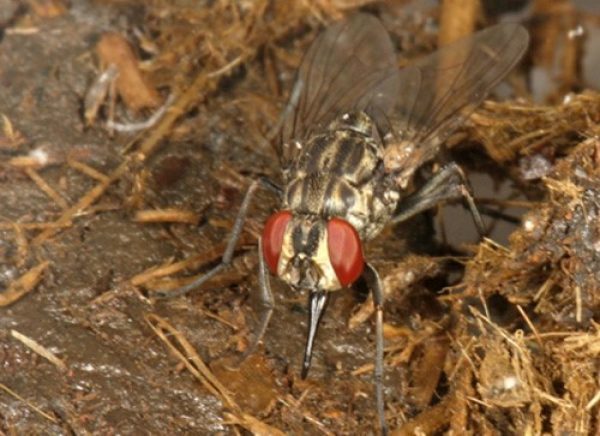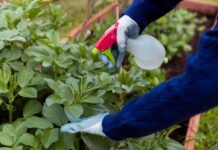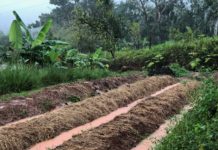Female stable fly (Stomoxys calcitrans) on donkey dung (Photo: Dr Robert Copeland, icipe)
Researchers at the International Centre of Insect Physiology and Ecology (icipe), in collaboration with colleagues at the University of Pretoria, South Africa, have identified chemical odours in specific animal dungs that guide pregnant female stable flies (Stomoxys calcitrans) to lay their eggs on the most suitable droppings. This optimum selection facilitates survival of the eggs and the emergence of stronger offsprings, thus ensuring thriving generations of the flies.
In a study published on 7 March 2019 in the journal Scientific Reports, the team emphasizes the importance of these findings, as they could lead to the development of odour baited traps for these highly destructive, extremely adaptive, yet little studied insects.
“Stable flies are a serious challenge for livestock and people across the world in general, and in Africa specifically. These blood-sucking insects transmit various pathogens, for example trypanosomes that cause the deadly trypanosomiasis,” noted icipe scientist Dr Merid Getahun, who led the study.
In addition, the painful bites of the flies lead to loss of blood, reduced weight gain and poor lactation in afflicted livestock, severely diminishing productivity.
The icipe-led study, conducted by Bernard Baleba as part of his PhD research at the Centre, registered at the University of Pretoria, demonstrates that even when numerous choices are available, stable flies have a strong preference to lay their eggs in donkey dung and sheep dung.
“We found these two types of droppings to have better nutrient content that improves the development of the eggs that hatch faster, while the young ones gain weight quicker, leading to more robust flies,” explains Baleba.
Further, the researchers established the flies’ choice to be guided by two compounds known scientifically as beta citronellene and carvone, found in donkey dung and sheep dung, respectively.
“These results have great potential. For example, these chemicals could be used in baiting traps to attract pregnant stable flies, hence reducing populations one generation to another,” Baleba further observed.
Dr Dan Masiga, Head, icipe Animal Health Theme added: “Any tools that improve control of vectors of animal diseases enhance the potential of African farmers to be productive. Therefore, this research is especially exciting because we can work in partnership with industry to translate into technologies and disseminate them to communities”.
Such a goal will be supported by icipe’s longstanding success in utilising chemical odours in insects to modify their behaviour, as a way of controlling them.









